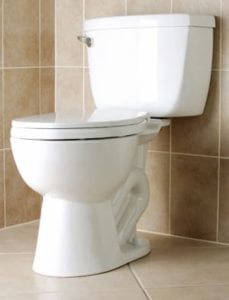The Kisumu Water and Sewage Company has received a €1.2 million grant from the African Water Facility to support an innovative project that will provide sanitation services for residents in the Manyatta settlement in Kisumu, Kenya. It will also create business through the sale of fertilizers, biogas and energy as by-product of sanitation collection.
An initial 48 000 people will benefit from the project with an additional 240 000 residents of the Kisumu urban area standing to benefit if the project expands to other settlements. The project, approved in July 2014, will facilitate a private venture to provide household toilets for the community, collect faecal sludge and turn it into profitable energy, biogas and fertilizer, to be marketed and sold to farmers and families. The project will give residents of the Manyatta informal settlement access to micro-finance to buy the household toilets. At least 55% of the micro-loans will be given to women. The shocking reality Approximately 90% of the residents of Manyatta use shared pit latrines that are poorly maintained and unhygienic. Cholera and other water-borne diseases are common among the population due to the overflowing of latrines and polluting water supplies.Approximately 80% of the outpatient hospital attendance in Kenya is due to preventable diseases, of which 50% is related to poor water supply, sanitation and hygiene.
By raising awareness of the importance of sanitation through community hygiene campaigns and by training local producers to build toilets, the project will aim to construct 100 demonstration toilets, sell 1 500 new and 500 upgraded household toilets through micro-credit financing, thereby significantly curbing water-borne diseases in the area. Changing sanitation “We see great potential for this initiative to change the way sanitation is provided Kisumu and potentially in other Kenyan towns,” explained Akissa Bahri, Coordinator of the AWF. “The services provided by the project can have an enormous impact on the quality of people’s lives, as well as provide a source of energy, biogas and fertilizer. We hope that its success will show how effective, safe and sustainable sanitation services can be provided in areas that do not have sewage infrastructure and promote the idea that waste can be reusable and income-generating.” The knowledge created from lessons learnt throughout the project will be used to showcase the initiative and attract further investment, allowing for the scaling up of the project.






